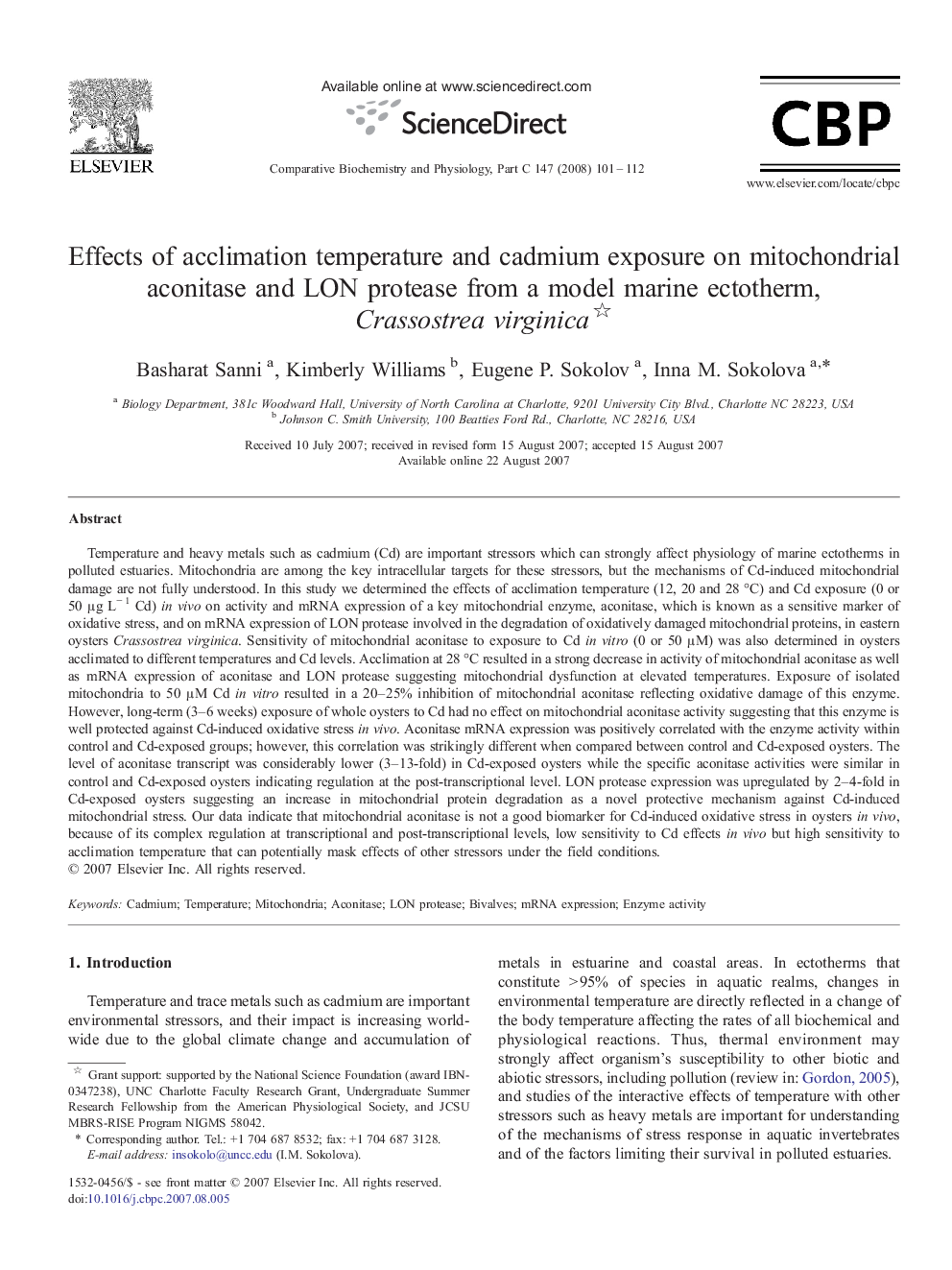| کد مقاله | کد نشریه | سال انتشار | مقاله انگلیسی | نسخه تمام متن |
|---|---|---|---|---|
| 1978420 | 1061546 | 2008 | 12 صفحه PDF | دانلود رایگان |

Temperature and heavy metals such as cadmium (Cd) are important stressors which can strongly affect physiology of marine ectotherms in polluted estuaries. Mitochondria are among the key intracellular targets for these stressors, but the mechanisms of Cd-induced mitochondrial damage are not fully understood. In this study we determined the effects of acclimation temperature (12, 20 and 28 °C) and Cd exposure (0 or 50 μg L− 1 Cd) in vivo on activity and mRNA expression of a key mitochondrial enzyme, aconitase, which is known as a sensitive marker of oxidative stress, and on mRNA expression of LON protease involved in the degradation of oxidatively damaged mitochondrial proteins, in eastern oysters Crassostrea virginica. Sensitivity of mitochondrial aconitase to exposure to Cd in vitro (0 or 50 μM) was also determined in oysters acclimated to different temperatures and Cd levels. Acclimation at 28 °C resulted in a strong decrease in activity of mitochondrial aconitase as well as mRNA expression of aconitase and LON protease suggesting mitochondrial dysfunction at elevated temperatures. Exposure of isolated mitochondria to 50 μM Cd in vitro resulted in a 20–25% inhibition of mitochondrial aconitase reflecting oxidative damage of this enzyme. However, long-term (3–6 weeks) exposure of whole oysters to Cd had no effect on mitochondrial aconitase activity suggesting that this enzyme is well protected against Cd-induced oxidative stress in vivo. Aconitase mRNA expression was positively correlated with the enzyme activity within control and Cd-exposed groups; however, this correlation was strikingly different when compared between control and Cd-exposed oysters. The level of aconitase transcript was considerably lower (3–13-fold) in Cd-exposed oysters while the specific aconitase activities were similar in control and Cd-exposed oysters indicating regulation at the post-transcriptional level. LON protease expression was upregulated by 2–4-fold in Cd-exposed oysters suggesting an increase in mitochondrial protein degradation as a novel protective mechanism against Cd-induced mitochondrial stress. Our data indicate that mitochondrial aconitase is not a good biomarker for Cd-induced oxidative stress in oysters in vivo, because of its complex regulation at transcriptional and post-transcriptional levels, low sensitivity to Cd effects in vivo but high sensitivity to acclimation temperature that can potentially mask effects of other stressors under the field conditions.
Journal: Comparative Biochemistry and Physiology Part C: Toxicology & Pharmacology - Volume 147, Issue 1, January 2008, Pages 101–112